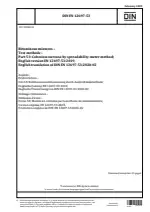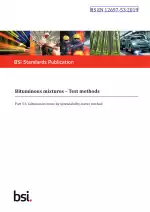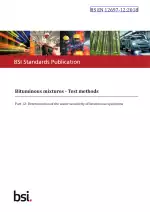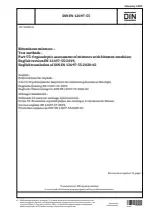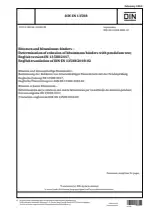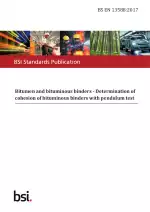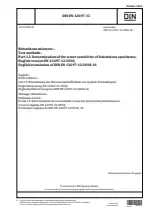Bituminous mixtures - Test methods - Part 53: Cohesion Increase by Spreadability-Meter Method
Also Known As:
The DIN EN 12697-53 standard describes a methodology for determining the cohesion increase of bituminous mixtures under controlled temperature and humidity conditions. The test involves the use of a spreadability-meter to measure the spreadability characteristics of asphalt, which can vary over time.
This standard is particularly useful for assessing the delay between the manufacturing and laying of bituminous mixtures. It is also applicable for determining the "pot-life" of emulsion-based asphalts and other cold mixtures, which refers to the time duration during which the mixture can be spread. The determination of the pot-life is important for clients to determine the minimum time within which the mixture needs to be used.
Additionally, this standard can assist designers in the mixture design process for bituminous mixtures, excluding mastic asphalt. It provides helpful information on the spreadability characteristics of different mixtures, which aids in the selection of appropriate mixture parameters such as emulsion type, aggregate type, and grading curve.
The DIN EN 12697-53 standard applies to bituminous mixtures produced in both laboratory and work site conditions. These mixtures should have an upper aggregate size not exceeding 31.5 mm.
| Descriptors | Asphalts, Cohesion, Construction, Construction materials, Constructional products, Cures, Determination, Dispersion, Flow diameter, Grain size, Measurement, Measuring techniques, Mineral aggregates, Road construction, Solder-spread measurements, Testing, Top lifes, Gellings |
| ICS Codes | 93.080.20 - Road construction materials |
| Language(s) | English |
| File Size | 3.0 MB |

